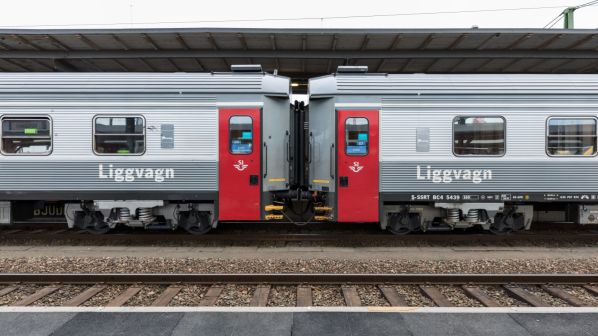The government says that the requirement for such rail services is growing as passengers become more climate conscious and look increasingly to travel by train for business or leisure. The government previously announced an SKr 400m ($US 45.1m) investment to procure the night train services, with the exact annual investment due to be announced in the autumn budget.
The decision follows the publication of a report by Trafikverket on April 27, which found that an “appropriate first step” to expand Sweden’s overnight rail offer to continental Europe would be to procure a service to Germany and Belgium via Denmark. The report, commissioned by the Swedish government in 2019, investigated the necessary conditions to procure regular overnight services from Sweden to continental Europe.
“The authority made the assessment that there are no conditions to procure night train traffic through Germany,” the government says. “On the other hand, it is possible through Sweden and Denmark and operators can run night train traffic on commercial grounds from the German border. The government has therefore instructed Trafikverket to procure night train traffic to the border between Denmark and Germany.”
The services will operate for four years, with an option for a two year extension.
Trafikverket will provide an initial report no later than January 1 2021, with a final report due no later than three months after the service has launched.
Snälltåget, Sweden, already operates an open-access service between Malmö and Berlin. The services is currently on hold due to the coronavirus pandemic, but will be rerouted via Hamburg and extended to Stockholm when relaunched next year. The service will operate daily during the summer months of June, July and August 2021, and will operate as a weekend service in April, May and September.
The operator has previously said it expected passenger numbers on the route to grow post-pandemic, but warned the service’s competitiveness could be affected by the launch of a publicly-funded service.

